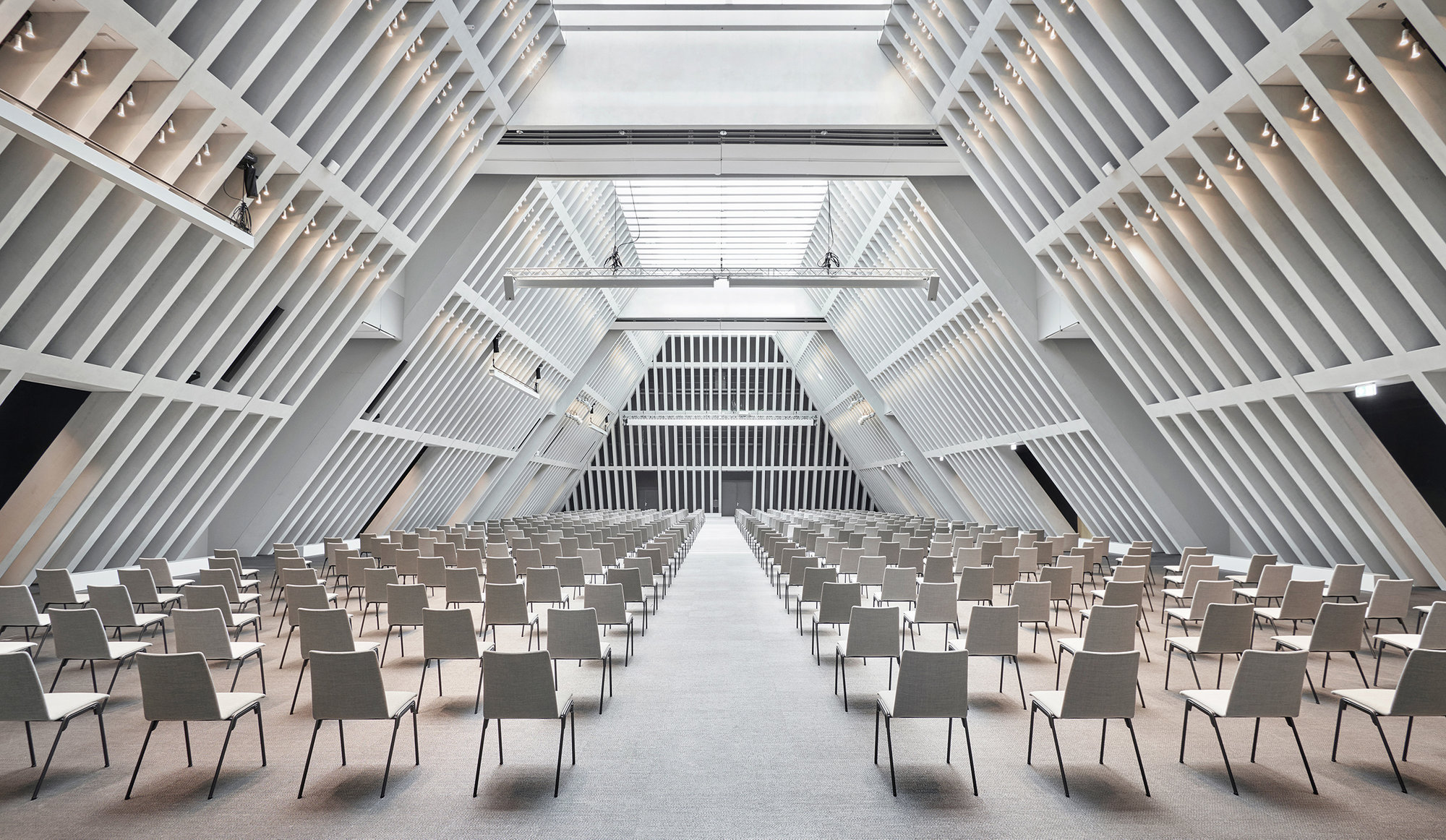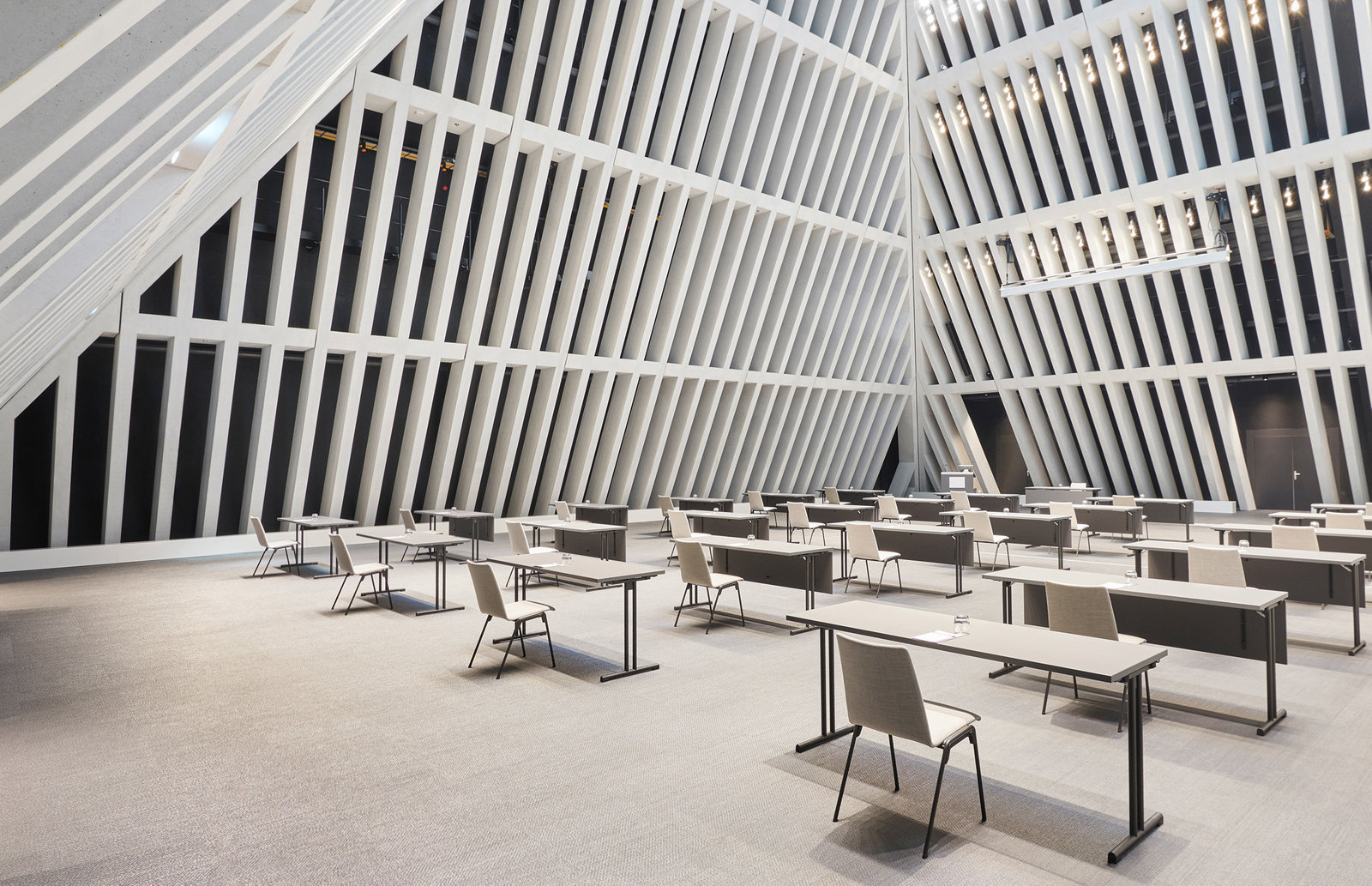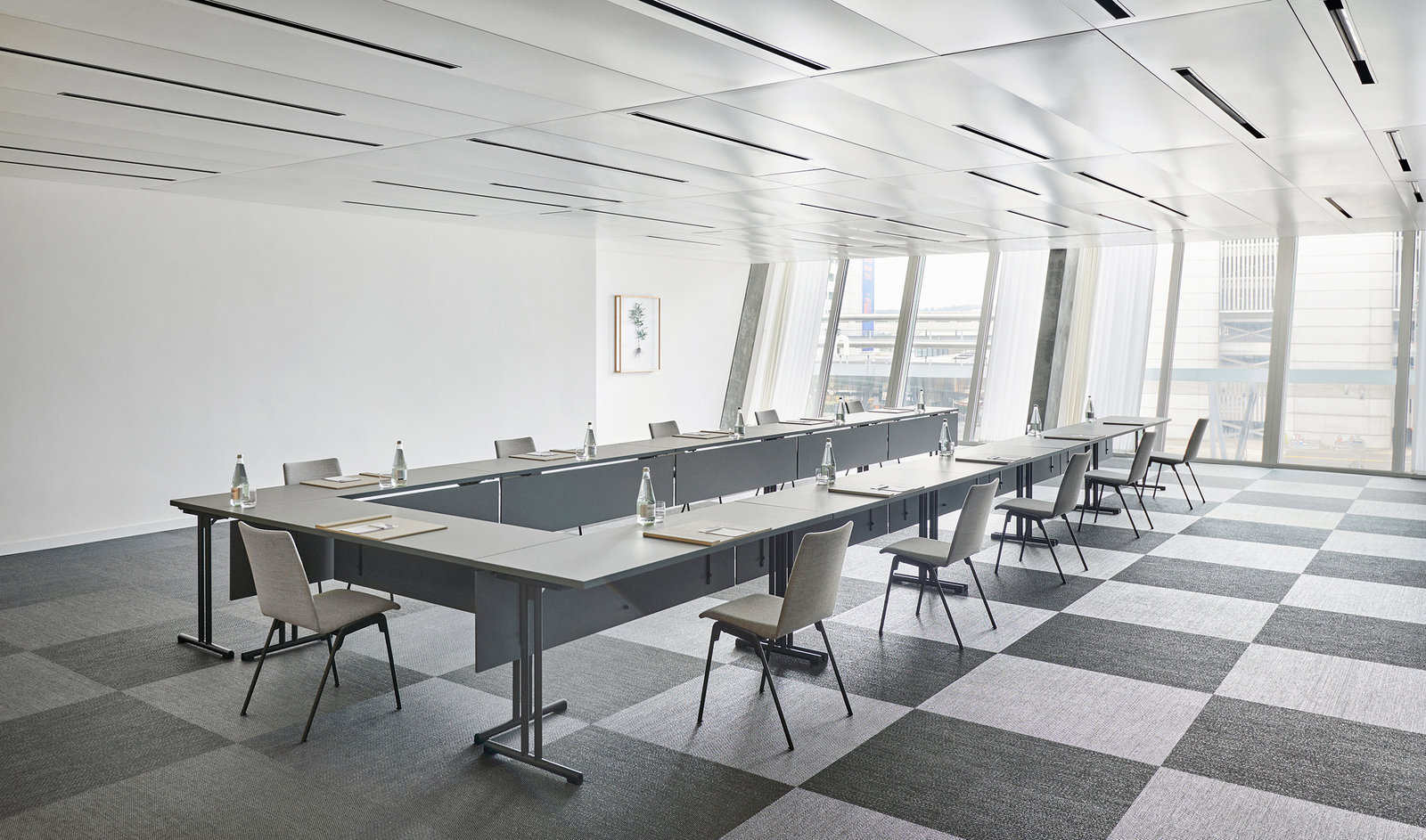It houses one of the largest convention centers in Switzerland and Kalfopoulos Architects were responsible for the interior design. 2,800 square meters offer state-of-the-art event space, suitable for congresses, meetings or events of any kind with up to 1,500 guests. Bolon was chosen for the congress hall as well as the meeting rooms and was installed on almost 1900 m². We asked Kalfopoulos Architects about the project, the choice of flooring and its requirements:
The impressive architecture of the convention hall is very dominant. Tell us a bit about how you started the concept for its interior design.
- Indeed, the whole architecture of the building is very expressive, and we were very excited to design the interior. We had to take several premises into account and developed different concepts. We looked closely at each room and then decided whether to highlight or contrast the existing architectural elements. In the congress hall, for example, we wanted to emphasize the architecture, while at the same time not wanting the floor to be too dominant.


